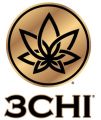
Delta 8 THC vs Delta 9 THC: What are the Differences Between these THC cannabinoids?
Since the rise of Delta 8 THC products, some consumers have come to enjoy the medicinal benefits of legal THC derived from hemp. Just like the household hemp-derived cannabinoid CBD, Delta 8 THC can also be formulated into a vape, oil and edible component all across the country. Although with Delta 9 THC, only a few legal marijuana states can carry products infused with more than 0.3% of this psychoactive cannabinoid. Even though the legality of these two THC cannabinoids differ from state to state, both Delta 9 THC and Delta 8 THC can possibly help consumers find relief for pain, anxiety, nausea and more.
What is Delta 8 THC?
With the 2018 Farm Bill Act, all 100-plus cannabinoids from hemp became legal to consume nationwide. Delta 8 THC is only derived from hemp, making this THC cannabinoid legal to consume in all 50 states. This THC cannabinoid binds with the CB1 receptor in the brain to help with possible focus, pain relief and anxiety benefits. Since Delta 8 THC interacts prominently with the brain, it can also provide psychoactive benefits to potentially get you “high.”
Why is the Legality for Delta 9 Different from Delta 8?
Since hemp’s legalization, only 0.3% or less of Delta 9 THC derived from hemp is legal to consume in the country. These strict regulations are in place to limit the amount of Delta 9 THC extracted since the cannabis plant can contain to 5% to 30% of THC. In legal cannabis states like Colorado, Nevada and California, all cannabis products can be recreationally consumed without a medical card or other state regulations. For states like New York, Arizona and Oklahoma consumers are required to have a medical card to buy and consume marijuana-derived products.
What are the Similarities Between Delta 9 and Delta 8 ?
When looking at Delta 8 and Delta 9 THC’s chemical structure, both the cannabinoids share similar double-ended bonds on carbon atoms that both label them as “Delta THC” cannabinoids. Although the major difference is that both Delta THC cannabinoids will have their double bonds in different locations within the atoms, for example being located in the 8th and 9th position in the sequence.
With these double-ended bonds in Delta 8 and Delta 9 THC, they are able to bring more electrons or more activity to the endocannabinoid system compared to other cannabinoids with a single carbon bond. Although both of these THC cannabinoids seem very similar to each other, where these specific bonds are located within the chemical sequence can create very different medicinal and recreational benefits. For example, Delta 9 THC has the ability to get someone “high,” although the potency of its psychoactive effects is much higher than Delta 8 THC. In a 2016 Pharmacy and Therapeutics’ study, researchers determined that Delta 9 THC had 50%-70% more potent psychoactive effects than Delta 8 THC.
What are the Benefits of Delta 8?
Delta 8 THC has multiple medicinal and psychoactive benefits for inflammation, nausea, cognition and more. In a 2018 Cannabis and Cannabinoid research journal, a group of scientists discovered that Delta 8 THC could help reduce pain stimulation and inflammation for ocular pain. With topical and oral application researchers were able to see a large decrease in overall inflammation with little to no psychoactive effects for lab mice with ocular injuries.
In a 1995 study published by the Hebrew University in Jerusalem, a team of researchers discovered how Delta 8 THC oil helped reduce chronic nausea with adults and children with hematologic cancers. For more than 120 days, children from ages 3 to 13-years-old were given 18mg of Delta 8 THC oil twice a day and reported to have little to no nausea with THC. For adults, they were also able to see an improvement with their rates of nausea with Delta 8 THC with minimal “high,” but children seemed to be immune to the psychoactive effects.
Since Delta 8 THC can help regulate the brain through the endocannabinoid system, the cannabinoid can also possibly help increase appetite and help with mental cognition. In a 2004 Biochemistry study, lab mice showed a 16-20% increase of food intake with 2.5mg of Delta 8 THC a day. In a 50-day trial, the lab mice also experienced an increase of acetylcholine, an organic chemical in both humans and animals that help with learning and cognitive memory. Since patent’s with Alzheimer’s disease possibly contain lower levels of acetylcholine, researchers are looking into Delta 8 THC to create new possible treatments to reverse memory loss and cognition from Alzheimer’s disease.
What are the Recreational Differences?
While both of these THC cannabinoids can get you “high,” Delta 8 THC can possibly create a relaxing “high” without the side effects of paranoia or nervousness. With Delta 9 THC’s potent psychoactive effects, some consumers can possibly experience the common side effects of agitation, nervousness, increased appetite and hallucinations. Due to its lower psychoactive effects, Delta 8 THC can possibly be more beneficial for help relieving anxiety and stimulating appetite.
Although there is a limited amount of research on the dual benefits of both cannabinoids, cannabis lovers have been raving about the benefits of both Delta 8 THC and Delta 9 THC for pain severity, anxiety and nausea in legal and non-legal cannabis states. Since both THC cannabinoids can provide possible psychoactive effects, they can result in a positive drug test. Go Green Botanicals recommends consulting with your doctor before trying Delta 8 THC and other cannabis-derived products. For consumers who want to try a legal form of THC, Delta 8 THC could be a beneficial option for long-term relief for inflammation, nausea due to cancer treatments, anxiety, Alzheimer’s and so much more. Shop our selection of Delta 8 THC products and see the benefits for yourself!
Cannabinoids, Delta 8 THC, Delta 9 THC, Hemp, marijuana, thc
 Shipping
Shipping Delivery
Delivery Local Pickup
Local Pickup





